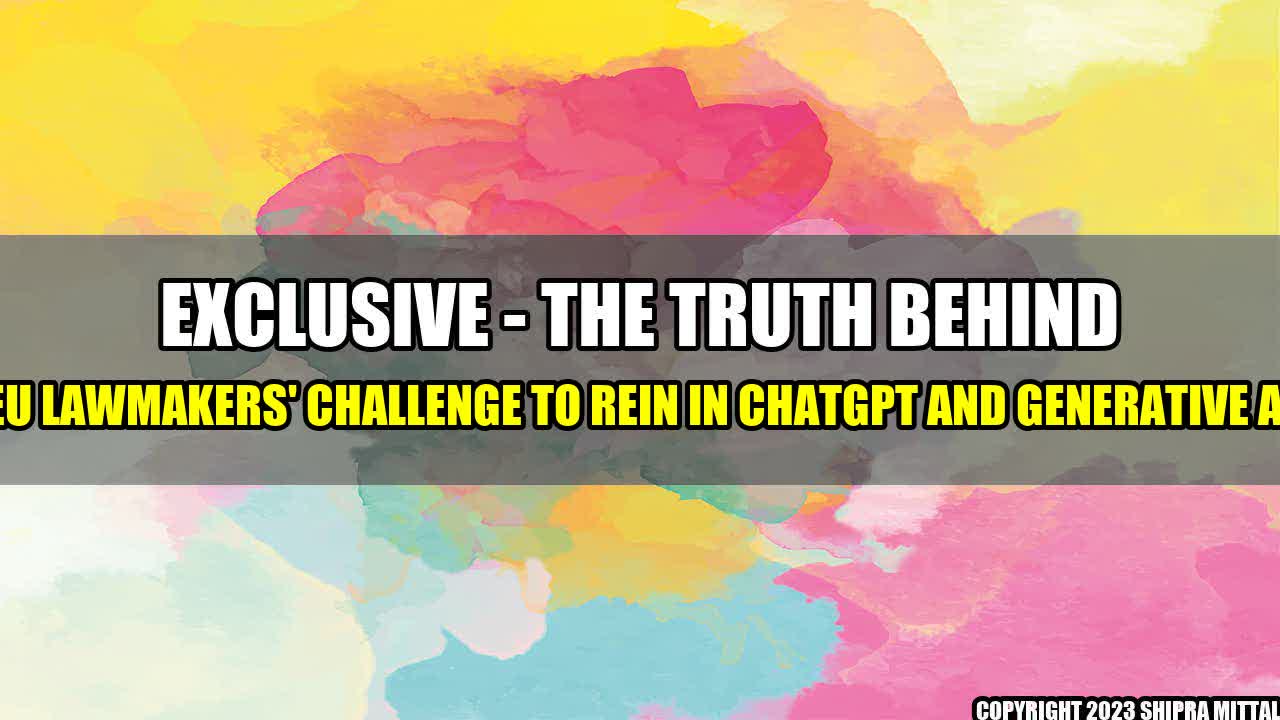
Let's start with an interesting story - have you ever chatted with a robot? If not, you might be surprised to learn that this is now possible. With artificial intelligence (AI) becoming increasingly sophisticated, companies are now using "chatbots" to engage with customers on social media platforms and websites.
One of the most famous chatbots is ChatGPT, created by OpenAI, a San Francisco-based artificial intelligence research laboratory. ChatGPT uses a neural network to generate human-like responses to text prompts, making it difficult to tell whether you are chatting with a person or a machine.
However, the use of ChatGPT and other generative AI technologies has attracted scrutiny from European Union lawmakers, who are concerned about the potential impact on privacy, accountability, and human rights.
According to an exclusive report by WTVB, EU politicians have called for tighter regulations on chatbots and generative AI, arguing that these technologies pose a threat to fundamental rights and freedoms. They have also expressed concern about the lack of transparency and oversight in the development and deployment of these technologies.
Real-life examples of the potential risks associated with chatbots and generative AI can be seen in recent scandals involving Facebook and Cambridge Analytica, as well as the Chinese social credit system. In both cases, AI-powered algorithms were used to collect and analyze vast amounts of personal data, which was then used to manipulate individuals and shape public opinion.
Several major tech companies, including Facebook, Google, and Microsoft, are heavily invested in the development of chatbots and generative AI. While these companies have pledged to uphold ethical principles and ensure the responsible use of AI, it remains to be seen whether they will be able to deliver on these promises.
As EU lawmakers continue to debate the regulation of chatbots and generative AI, it is clear that this is a complex issue that requires careful consideration. While these technologies have the potential to transform the way we interact with machines and with each other, they also pose significant risks that must be addressed.
In conclusion, it is important to strike a balance between innovation and regulation when it comes to chatbots and generative AI. Companies should prioritize the development of ethical and transparent AI systems, while lawmakers should work to ensure that these technologies do not undermine fundamental rights and freedoms.
References:
Further reading:
Article category: Technology
Author: Akash Mittal
Akash Mittal Tech Article
Share on Twitter Share on LinkedIn